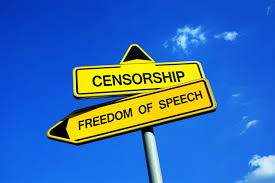
Many employees believe the First Amendment protects everything they say at work-but that’s not the full story. Read on to learn what’s really protected, and what isn’t.
How far can you claim free speech is your right in the workplace?
Employers have been known to discipline employees for their on-site activities, such as disruptive expressions of opinion or efforts to protest company policies.
While it may seem that such activities are within an employee’s free speech rights, the first amendment to the US Constitution does not protect speech against retaliation by a private employer. That is because the First Amendment only protects individuals against the actions of government, be it federal, state or local. When a private employer decides that it does not approve of an employee’s on the job speech or activities, it can properly discipline that employee, including up to termination.
Generally speaking, the Constitution was written to protect people from the actions of government. It does not protect people from each other; there are other laws which do that, such as criminal laws that are designed to prevent people from harming each other. The Founding Fathers were concerned only with the powers of the sovereign (i.e., the Monarch) over citizens. Congress was vested with the power to write laws that address how people may or may not treat each other.
There is no law that prevents a private employer from disciplining an employee because the employer does not approve of the employee’s on-the-job speech. Showing up at your job with an anti (or pro) political opinion expressed by way of a button or sign on your desk can, and now often does, result in reprimand, being forced to remove the sign/button or even dismissal. Unless your speech refers to an act of discrimination in the workplace, you can be subject to adverse consequences. Specific statutory enactments of congress (or state legislatures) protect individuals against discrimination in the workplace and against retaliation for speaking out against it (known as “protected activity”).
Even in the public sector, where the employer is the government, an employee’s free speech rights are limited to speaking out about “matters of public concern.” This means that an employee’s on-the-job speech is not protected against adverse action by the public employer unless it bears on something that is of broader interest than those activities related to the workplace.
For example, if a public employee were to wear a “Make America Great Again” hat to work, that employee is likely protected from adverse consequences since the MAGA symbol represents something of broader meaning than what occurs in the workplace. But if a public employee wore a hat that said, “my supervisor is stupid,” that is likely not protected under current law because it has no broader meaning outside the workplace and is not “of public concern.”
If you have experienced speech restrictions or been disciplined because of speech in the workplace, tread lightly and do not assume the First Amendment protects your speech. And if you need clarification on your First Amendment rights in your workplace, feel free to reach out to me here.

